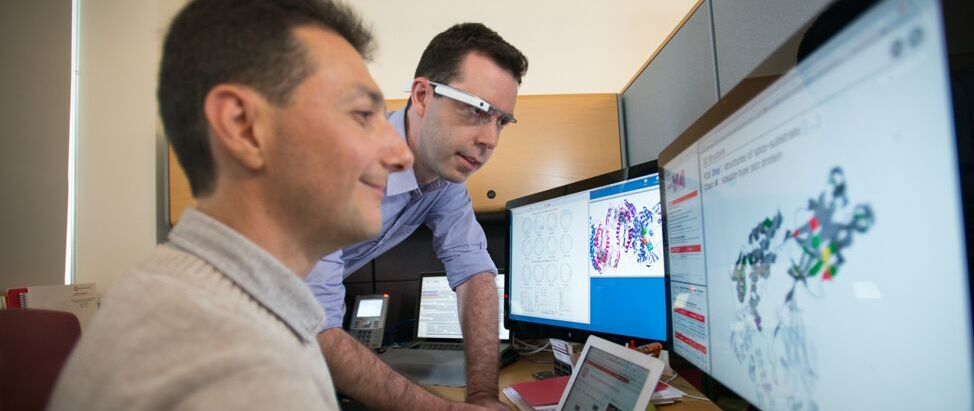
Computational biology and bioinformatics are the use of computational methods to analyze and interpret biological data, including that from DNA sequencing, gene expression analysis, and protein structure prediction. These efforts are essential to the mission to improve patient care and to advance the field of precision medicine. The Englander Institute for Precision Medicine has a strong team of computational biologists and informaticians who are experts in using these methods to advance our understanding of disease and develop new treatments.
EIPM computational biologists and informaticians work includes:
| TUMOR CLASSIFICATION | GENOMIC LANDSCAPES: WGS, WES | GENE EXPRESSION PROFILING | IMMUNO-ONCOLOGY | CLINICAL ASSOCIATIONS | SPATIAL OMICS | OTHERS |
|---|---|---|---|---|---|---|
| Tumor Mutation Burden | Mutation Calls & Characterization | Differential Gene Expression | HLA Predictions | Survival Analysis | Image analysis -cell and cell type identificatio | Retroviral Element Detection |
| Micro-satellite Instability | Mutational Signatures | Gene Fusions | Neoantigen Predictions | Associations with Clinical Features | Tissue architecture - cell talks | Data Visualization : EIPM Portal, CbioPortal |
| Cancer Subtype Detection | Copy Number Alterations | scRNA Data Analysis | Tumor Microenvironment | Analysis of public/private datasets | ||
| Clonal Evolution | T-cell & B-cell Repertoires |
We are excited about the potential of computational biology and bioinformatics to revolutionize healthcare. We believe that these methods will play a critical role in developing new treatments for diseases and improving patient care.
The cBioPortal is an open-source platform that allows researchers to visualize, explore, and analyze cancer genomic datasets. It is a powerful tool that can be used to identify patterns and relationships in cancer data, and to develop new hypotheses about how cancer works.
The cBioPortal is used by researchers around the world, and it has been instrumental in advancing our understanding of cancer. It is a valuable resource for anyone who is interested in using computational methods to study cancer.
Here are some of the specific ways that the Englander Institute for Precision Medicine uses cBioPortal:
The cBioPortal is a valuable tool that is helping us to make progress in the fight against cancer.
At the Englander Institute for Precision Medicine, besides of code and data contributions to cBioPortal, we maintain an internal EIPM cBioPortal with additional access to unique, internal cohorts specific to the institutes data. Access to these internal datasets can be granted upon request, providing valuable resources for researchers seeking to conduct more specialized or in-depth studies in the field of precision medicine and oncology.